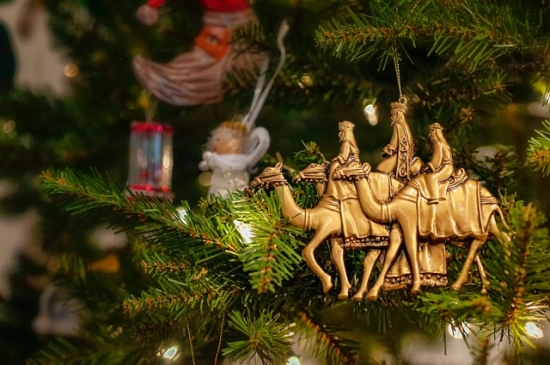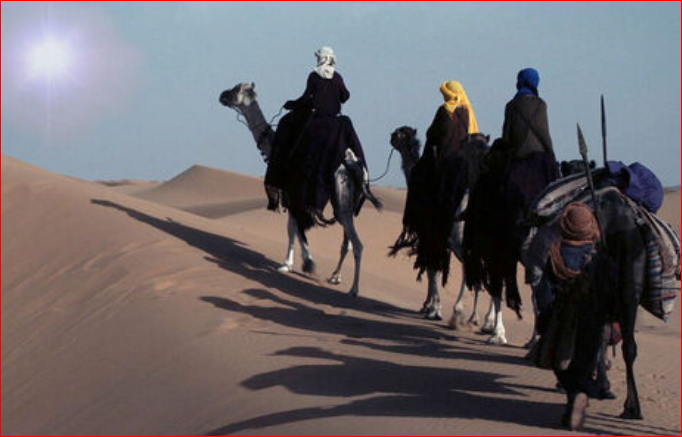1
POI il Signore parlò a Mosè e ad Aaronne, dicendo loro:
2
Parlate a’ figliuoli d’Israele, dicendo: Questi son gli animali, de’ quali voi potrete mangiare, d’infra tutte le bestie che son sopra la terra.
3
D’infra le bestie a quattro piedi, voi potrete mangiar di tutte quelle bestie che hanno il piè forcuto, e l’unghia spartita in due, e che ruminano.
4
Ma, fra quelle che hanno il piè forcuto, o che ruminano, non mangiate di queste: del cammello; conciossiachè egli rumini, ma non abbia il piè forcuto; siavi immondo;
5
nè del coniglio; conciossiachè egli rumini, ma non abbia il piè forcuto; siavi immondo;
6
nè della lepre; conciossiachè ella rumini, ma non abbia il piè forcuto; siavi immonda;
7
nè del porco; conciossiachè egli abbia il piè forcuto, e spartito in due, ma non rumini; siavi immondo.
8
Non mangiate della carne loro, e non toccate le lor carogne; sienvi immonde.
9
Voi potrete mangiar di queste specie d’infra tutti gli animali acquatici, cioè: di tutti quelli che hanno pennette, e scaglie, nell’acque, così ne’ mari, come nei fiumi.
10
Ma siavi in abbominazione tutto ciò che non ha pennette, nè scaglie, così ne’ mari, come ne’ fiumi, fra tutti i rettili acquatici, e fra tutti gli animali che vivono nelle acque.
11
Sienvi adunque in abbominazione; non mangiate della carne loro, e abbiate in abbominio le lor carogne.
12
In somma, siavi cosa abbominevole ogni animale che nell’acque non ha pennette, nè scaglie.
13
E fra gli uccelli abbiate questi in abbominio; non manginsi; son cosa abbominevole: l’aquila, il girifalco, l’aquila marina;
14
ogni specie di nibbio e di avvoltoio;
16
l’ulula, la civetta, la folica, e ogni specie di sparviere;
17
il gufo, lo smergo, e l’alocco; il cigno, il pellicano, la pica;
18
la cicogna, e ogni specie di aghirone;
19
l’upupa, e il vipistrello.
20
Siavi parimente in abbominio ogni rettile che vola, e cammina a quattro piedi.
21
Ma pur d’infra tutti i rettili che volano, e camminano a quattro piedi, voi potrete mangiar di quelli che hanno garetti disopra a’ piedi, per saltar con essi in su la terra.
22
Di tali potrete mangiar di questi; d’ogni specie di arbe, di ogni specie di soleam, d’ogni specie di argol, e d’ogni specie di agab.
23
Ma siavi in abbominio ogni altro rettile che vola, ed ha quattro piedi.
24
E per queste bestie voi vi renderete immondi; chiunque toccherà il corpo morto loro, sarà immondo infino alla sera.
25
E chiunque avrà portato del lor corpo morto lavi i suoi vestimenti, e sia immondo infino alla sera.
26
Di tutte le bestie domestiche sienvi immonde tutte quelle che hanno l’unghia fessa, ma non spartita in due, e che non ruminano; chiunque avrà toccati tali animali, sia immondo.
27
E di tutte le bestie che camminano a quattro piedi sienvi immonde tutte quelle che camminano sopra le lor branche; chiunque avrà toccato il corpo morto di tali bestie, sia immondo infino alla sera.
28
E chi avrà portato il lor corpo morto lavi i suoi vestimenti, e sia immondo infino alla sera; quelle bestie vi sono immonde.
29
E de’ rettili che van serpendo sopra la terra, sienvi immondi questi, cioè: ogni specie di donnola, e di topo, e di testuggine;
30
e il toporagno, e il cameleone, e la lucertola, e la tarantola, e la talpa.
31
Fra tutti i rettili, sienvi questi immondi; chiunque li avrà toccati, essendo morti, sia immondo infino alla sera.
32
E qualunque cosa, sopra la quale sarà caduto alcuno di que’ rettili, essendo morto, sia immonda; qualunque vasello di legno, o vestimento, o pelle, o sacco, o qualunque altro strumento, col quale si fa alcun servigio; e però sia posto nell’acqua, e sia immondo infino alla sera; poi sia mondo.
33
E se alcun di quei rettili sarà caduto dentro alcun testo, tutto quello che vi sarà dentro sia immondo, e spezzate il testo.
34
Qualunque vivanda si mangia, sopra la quale si mette dell’acqua, sia immonda; e qualunque bevanda si beve, in qualche vaso ella si sia, sia immonda.
35
E ogni cosa, sopra la quale caderà del corpo morto loro, sia immonda; il forno, o il testo da cuocere, sia disfatto; essi sono immondi; però teneteli per immondi.
36
Ma pur la fonte, o il pozzo d’acqua raccolta, sia monda; ma chi avrà tocco il corpo morto loro, sia immondo.
37
Ma, se cade del corpo morto loro sopra qualunque semenza che si semina, sia quella semenza monda.
38
Ma, se è stata messa dell’acqua sopra la semenza, e vi cade sopra del corpo morto loro, siavi quella semenza immonda.
39
E, quando alcuna di quelle bestie che vi son per cibo sarà morta da sè, chi avrà tocco il corpo morto di essa, sia immondo infino alla sera.
40
E chi avrà mangiata della carne morta di essa lavi i suoi vestimenti, e sia immondo infino alla sera; parimente, chi avrà portato il corpo morto di essa lavi i suoi vestimenti, e sia immondo infino alla sera.
41
Ogni rettile che serpe sopra la terra sia immondo; non mangisi.
42
D’infra tutti i rettili che serpono sopra la terra non mangiate niuno di quelli che camminano in sul petto, o sia che camminino a quattro piedi, o che abbiano più piedi; perciocchè son cosa abbominevole.
43
Non rendete abbominevoli le vostre persone per niun rettile che serpe; e non vi contaminate con essi, onde siate immondi per essi.
44
Perciocchè io sono il Signore Iddio vostro; santificatevi adunque, e siate santi; conciossiachè io sia santo; e non contaminate le vostre persone con alcun rettile che serpe sopra la terra.
45
Perciocchè io sono il Signore, che vi ho tratti fuor del paese di Egitto, acciocchè io vi sia Dio; siate adunque santi; imperocchè io son santo.
46
Quest’è la legge intorno alle bestie, e agli uccelli, e ad ogni animal vivente che guizza nelle acque, e ad ogni animale che serpe sopra la terra;
47
per discernere fra l’immondo e il mondo; e fra gli animali che si posson mangiare, e quelli che non si devono mangiare.








